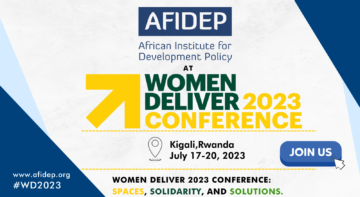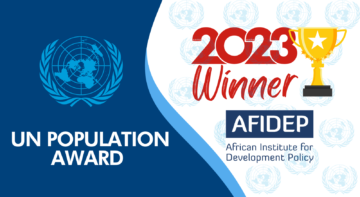Blogs

“Of what use is a big population that is full of peasants who cannot read, feed themselves, who are not healthy?” H.E. President Yoweri Museveni at the 2014 Uganda National Conference on Family Planning.
During this year’s Uganda National Conference on Family Planning held at the Serena Hotel in Kampala from July 28-30, 2014, Uganda’s President H.E. Yoweri Museveni led from the frontline in championing family planning is a critical ingredient of development.
“”¦Family planning is good for the health of the child and the mother, for the wellbeing of the family, and the whole country “¦It’s about holistic development that starts with the realisation that having too many children is not good for development,” he said.
At the opening of the Uganda’s first ever national conference on family planning held between July 28-30, the president also launched the report on “Harnessing the Demographic Dividend: Accelerating Socioeconomic Transformation in Uganda’, which was commissioned by Uganda’s National Planning Authority (NPA), and developed by various stakeholders led by AFIDEP. In reference to the presentation made by Dr. Wilberforce Kisamba (NPA) on “Harnessing the Demographic Dividend to achieve Uganda’s Vision 2040′, President Museveni noted that he was happy that discourses on linkages between population and development are finally focusing on how countries like Uganda can take advantage of its population dynamics to accelerate socioeconomic transformation. He noted that the core aspect of this should focus on Uganda reducing the high child dependency burden, enhancing economic reforms and job creation, and investing in human capital development in the way that Malaysia had done between 1960 and 2010.
“In order for [our] big population to be advantageous like in India, China and Brazil, we [also] need to invest in education, health, infrastructure development and job creation. That is why I am happy that the issue [on family planning] is now being looked at from the Demographic Dividend perspective”¦,” he emphasized. “”¦If all [we] do is control the population and reduce fertility without looking at the other factors, [we] won’t go far as a country.”
Speaking on the opposition to family planning particularly from the religious quarters, President Museveni took a firm stand, “Religious leaders who are against family planning should rethink. If they can [demonstrate] to me that they can take care of 15 children and keep them healthy, well educated, and employed, I am ready to talk to them and let them preach to me. Before they do that, they should keep quiet.”
He emphasized that family planning is good for both mothers and children, “Having too many children ruins children and women’s lives because it is not possible for them to receive good care and education. If parents have few children, they can save more money and create wealth.”
“There is nothing to argue about now, the evidence is clear. We are not talking about having a small population here for its own sake – we are talking about ensuring that we have a quality population,” the President concluded.
The President’s warm endorsement of the role of family planning in development was a pleasant surprise to many participants at the conference because in the past he has strongly promoted the idea that Uganda needs a big population in order to develop. He argued that African countries like Uganda are under-populated and family planning should only be used to prolong birth intervals, which are key for promoting maternal and child health. His emphatic endorsement of family planning as a central intervention for helping families have few children that they can manage to take care of and facilitating socioeconomic transformation through reduction in the high child dependency burden was widely celebrated as a key victory for evidence-based and smart advocacy.
This kind of top-level leadership for family planning is critical for enabling increased demand for and use of family planning services in many African countries, where contraceptive use levels remain very low despite well-documented health and economic benefits of family planning.
Read related story here. Download the report signed by President Museveni here
Related Posts





